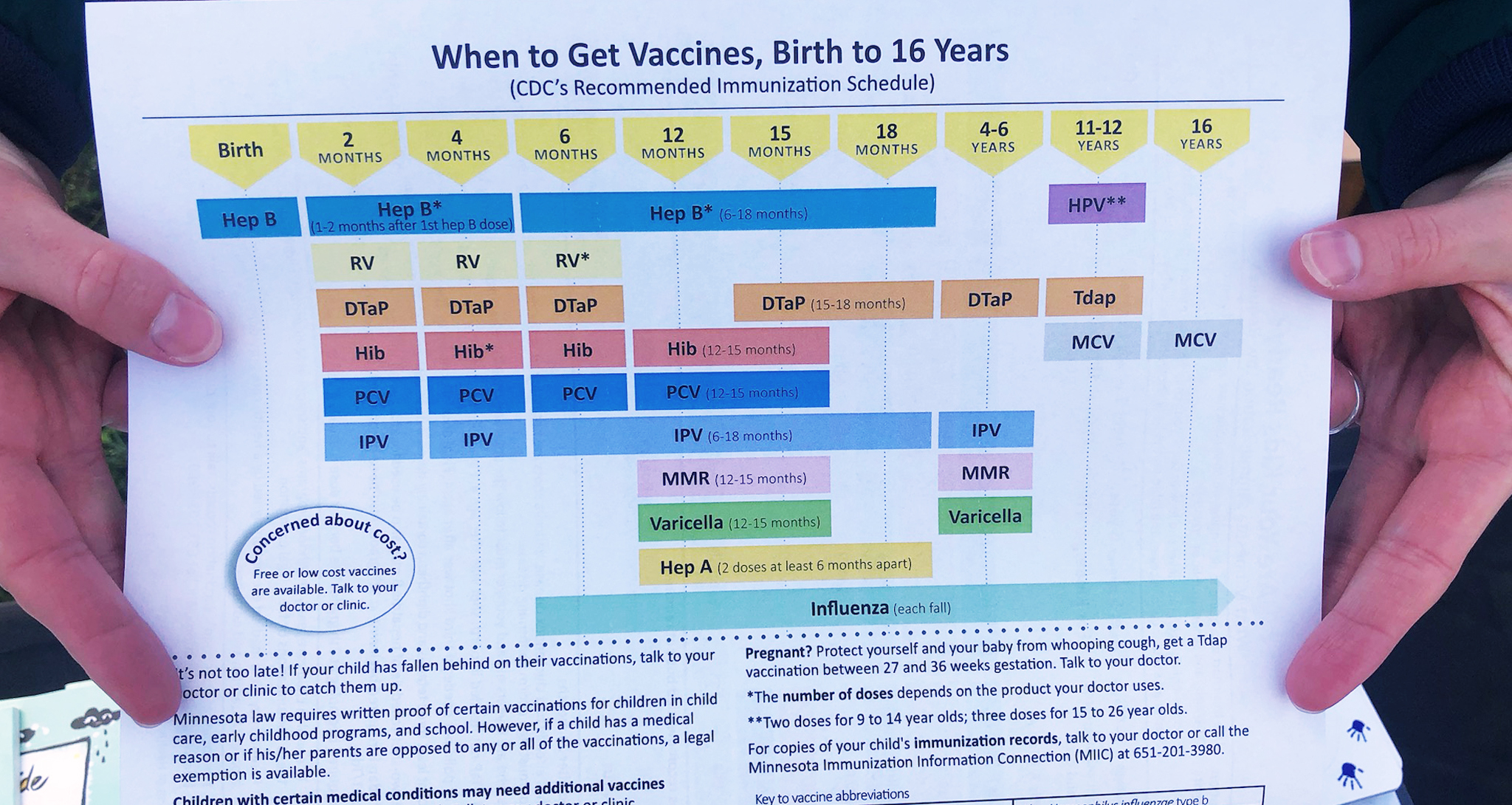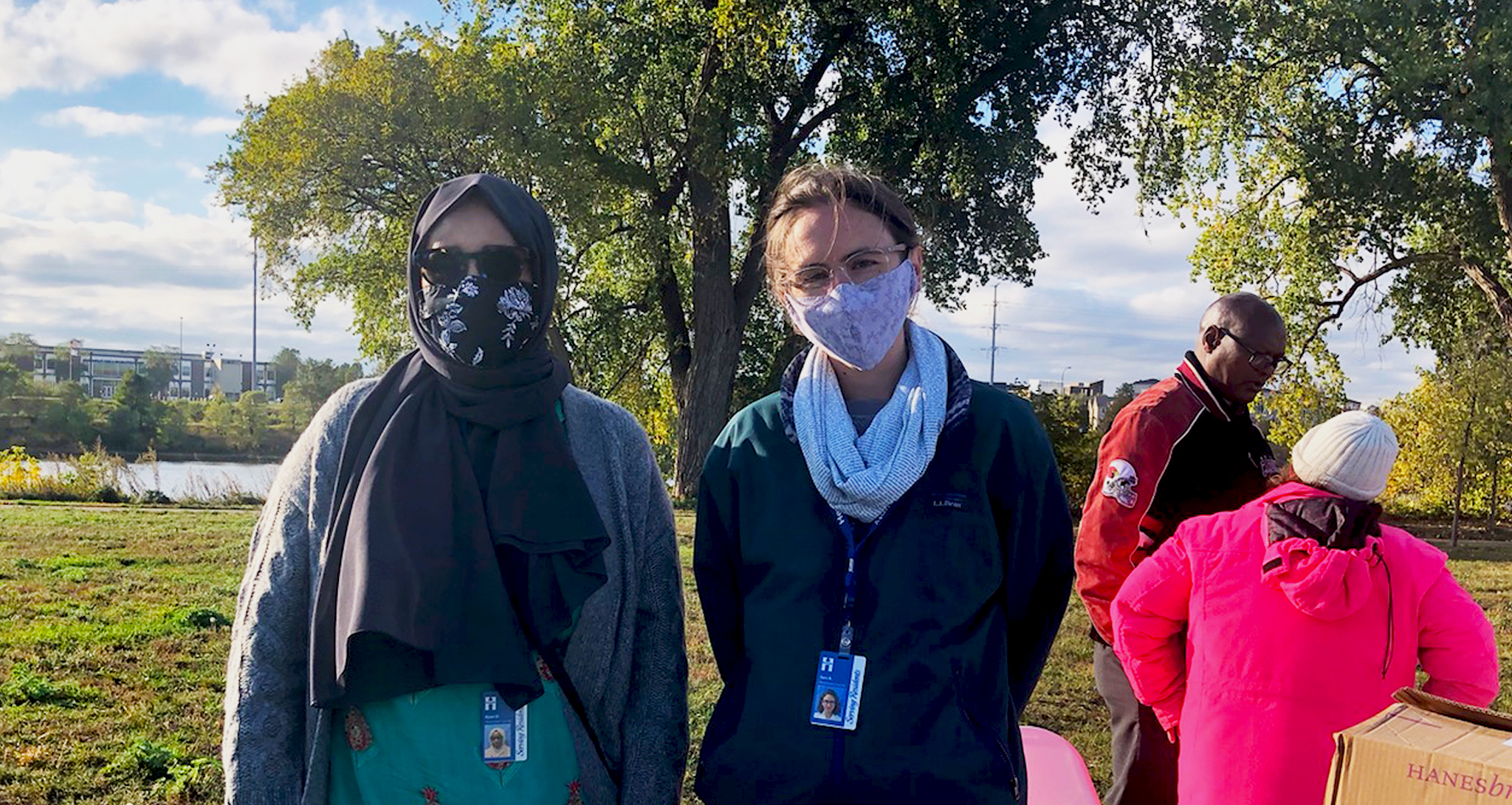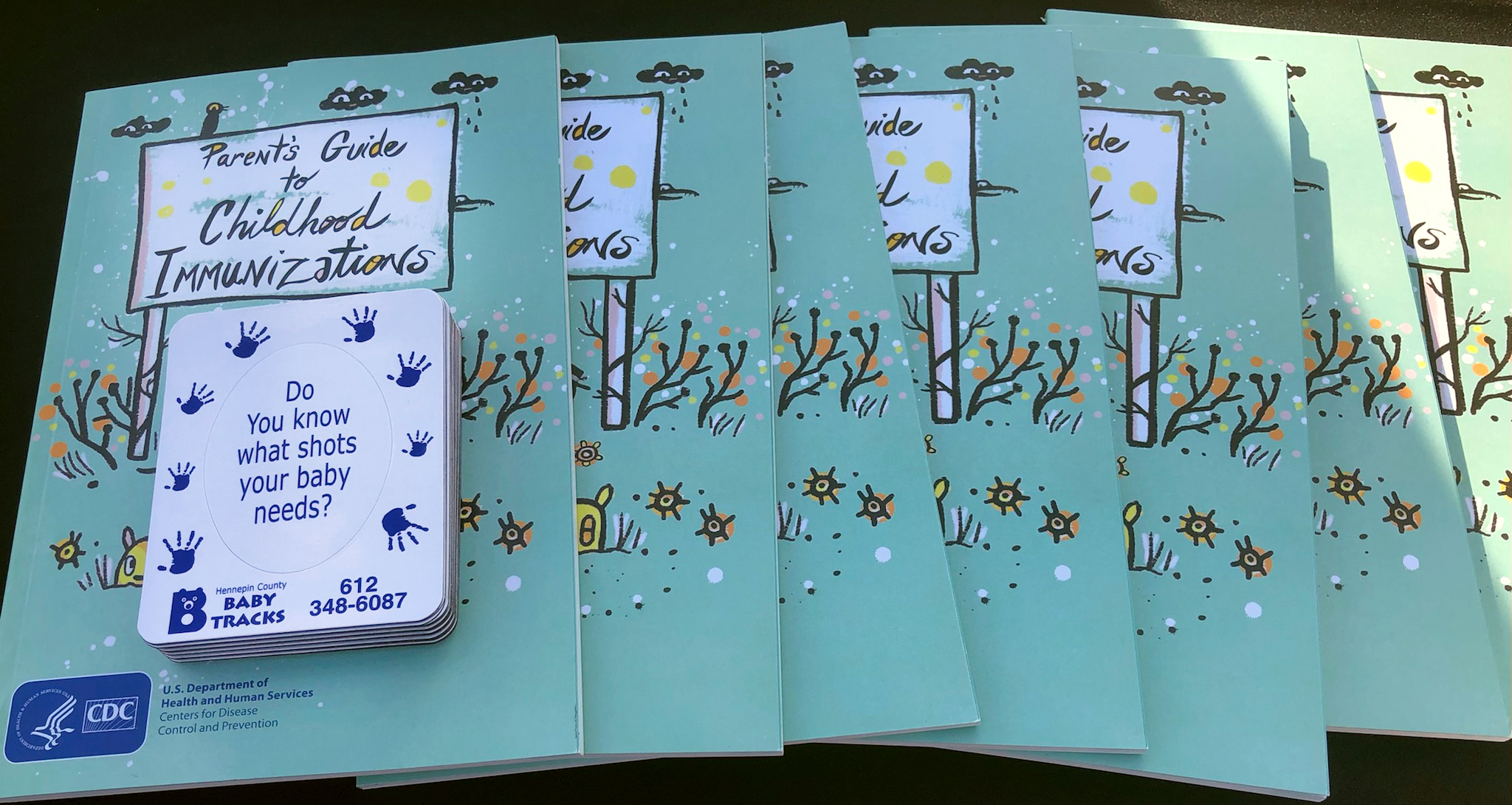

Childhood immunizations help protect kids from serious diseases like measles, mumps, and rubella. But due to COVID-19, many children have fallen behind.
Hennepin County’s Baby Tracks is trying to help. The free program helps county parents with babies, birth to 2, figure out what immunizations their child needs, update shot records, and find a clinic.
Four staff describe what that looks like.
Childhood immunization rates are down due to COVID. Baby Tracks is trying to help.
On a cold evening in early October, Ayan Osman and Sara Kennedy table at a community health fair in northeast Minneapolis’s Sheridan Park. As the sun sets over the Mississippi River, the two community health workers talk to parents who filter by -- answering questions, handing out immunization schedules, and encouraging them to connect with a provider.
“This outreach is about moving the conversation forward,” says Kennedy.
Kennedy recalls a conversation with a mom who said there were too many vaccinations on the immunization schedule and questioned whether they were all necessary. “It was helpful to show her I was someone who could listen to her, to have that beginning conversation with her that all of these immunizations are important and protective,” Kennedy says.
“My job is identifying barriers and helping people connect to a provider that they can have a trusted relationship with.”

In addition to community outreach, Baby Tracks uses data to target residents more closely, sending postcards to families with a new baby who reside in low vaccination rate zip codes in Hennepin County. The materials invite parents to sign up for the free program.
Program staff like Community Health Specialist Sheree Mickelson also monitor data from Minnesota’s immunization database, identifying babies enrolled in the program who’ve fallen behind on their shots. Then they reach out to the baby’s parents and clinic to help them get an appointment scheduled.
"I work hand-in-hand with data and with our families," says Mickelson. "Doing so, allows me to analyze the program from a numerical standpoint and from the parent's perspective -- helping to reduce early childhood health disparities in our community."

Regardless of the strategies they use, one thing is clear. The COVID-19 pandemic has worsened childhood immunization rates.
This reality prompted Miriam Sanchez, a senior community health worker, to join Baby Tracks in the middle of the pandemic.
“Immunizations have been at the forefront of everyone’s mind,” says Sanchez. “There was already hesitancy in our community around the MMR [measles, mumps, and rubella] vaccine and now there’s disinformation around COVID. I like that the age range is focused on a significant time in a child’s development.”
In addition to misinformation, Sanchez cites safety concerns as a reason kids have fallen behind on immunizations. She stresses to clients that clinics have safety measures in place and that now’s the right time to get caught up for school, sports, daycare, and other activities.
Recently, Sanchez helped a new mom get her 8-month-old immunized. The child did not have health insurance, so Sanchez made phone calls to help the mom get her child a plan. “There was a language barrier,” says Sanchez. “But the system can be confusing to everyone.”
“Stories like this make my job worth it,” she adds. “I want my community to be healthy and avoid diseases.”

Going forward, Baby Tracks is using data analysis and GIS mapping to expand its services to additional county zip codes with lower immunization rates.
The program is also reimagining its outreach strategy. The pandemic has shown them that virtual outreach formats can be just as effective – or more effective -- than tabling at a park.
Ayan Osman, a member of the Somali community, has conducted several immunization presentations over Zoom. Somali community influencers have helped her find families to attend.
Osman facilitates the presentations in Somali. “This is a place where people can get the real, not the fake information,” says Osman.
Virtual formats are convenient – people don’t have to brave traffic or inclement weather. And she’s noticed that participants are more engaged over Zoom. “People ask more questions virtually – when there’s no camera and no one is looking at them,” says Osman. “I like bringing something positive to the community.”